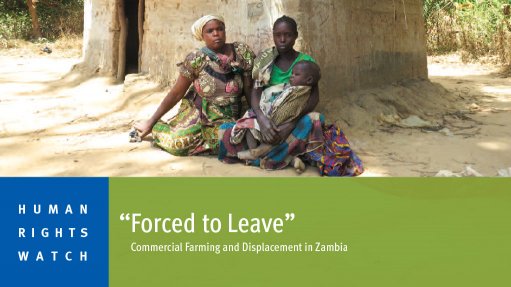
The Zambian government regards agriculture as a “panacea” for rural poverty, and the country’s leaders have been promoting agribusiness investments on huge swaths of land. However, flaws in the government’s regulation of commercial agriculture, and its poor efforts at protecting the rights of vulnerable people, instead of helping people climb out of the poverty mire, are actually hurting them. Families that have lived and farmed for generations on land now allocated to commercial farms are being displaced without due process or compensation. Some have been left hungry and homeless.
Any one commercial agriculture project, whether a massive investment by foreign investors on tens of thousands of hectares of agricultural land, or smaller land deals on a few hundred to a few thousand hectares, may impact individuals and households. Without proper safeguards, they may have a tremendously negative cumulative impact on local communities. Rural people suffer when governments fail to properly regulate land deals, large or small, and the operation of commercial farms. That is precisely what is happening in some rural communities in Zambia.
In conducting research for this report, Human Rights Watch interviewed, in 2016 and 2017, more than 130 rural residents whose families had lived for years, and sometimes generations, in Serenje district, in Zambia’s Central Province. We also interviewed officials at the district, provincial, and central levels of government, in addition to representatives of some commercial farms in the district, lawyers, analysts and other experts. Human Rights Watch examined the impact of six commercial farms on local communities in Serenje district. Four of these farms were fully operational, had cleared land of trees and most settlements, were in the process of clearing more land, and were cultivating. The other two commercial farms planned to start clearing fields as soon as they could get residents off the land. The farms that are fully operational grow soybeans and wheat, along with other crops, largely for export.
Report by the Human Rights Watch